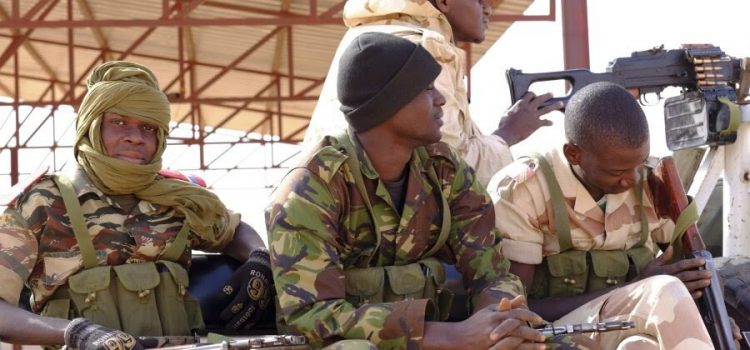Bokoharam has one purpose now, and that is to govern. This mission makes the terrorist group a far more significant threat to Nigeria’s sovereignty than we ever imagined. Expectedly, their most important weapon of warfare is not their recently acquired anti-aircraft missile, nor the dynamism of their guerrilla tactic; it is their effective propaganda machine – one that targets hearts and minds. This war machine is proving even more effective as the Nigerian government (including state and local governments) is spectacularly failing to provide essential social services to people in remote communities in the North East and North West.
In its bold attempt to establish its caliphate, Boko-Haram is modeling its approach after ISIS at the height of its prominence when it controlled 45,377 square kilometers (about the size of Kano, Ogun, and Rivers state put together) between Iraq and Syria. When ISIS took over cities like Mosul, Fallujah, and Raqa, it embarked on a widespread campaign to disseminate its ideology among the local population by using various media productions such as al-Naba’s, a weekly newspaper, and al-Bayan Radio, a broadcast radio station. Bokoharam, on the other hand, has found an effective way of using social media and digital technology to drive a disinformation campaign and to spread its ideology.
Unfortunately, and somewhat naively, the Nigerian government has continued to view Boko haram terrorists as merely a renegade army rather than a group of zealots who dream of establishing a new system of government and imposing their ways on the Nigerian people. Nigeria would approach this warfare with broader counterterrorism measures to win the information warfare and defeat the terrorists on the battlefield if it knew better. At the moment, the government seems to be ceding that ground to the terrorists. For some locals in remote villages in the North, Boko haram is the only group offering them a sense of belonging, giving them hope and identity. In contrast, the government is notoriously absent. There is a tiny provision of basic amenities, and the state is unable to protect them. What option do you think they are left with?
When people can no longer genuinely feel the presence or impact of the Nigerian state, the promise of a caliphate becomes a much appealing proposition. It is for this precise reason that the terrorists are brutally effective and extremely dangerous. The Nigerian government has no story to tell, and it is not even attempting to create one to inspire hope and patriotism.
It doesn’t matter if the Service Chief’s are changed often or how much we budget for the Nigerian Army. As long as the terrorists tell a better story, our bullets will be no match for their weapons of warfare. While it is essential to continue strengthening our military, this war cannot be won with just boots on the ground or fighter jets in the air. If in doubt, ask the Americans about their 18-year experience in Afghanistan.




